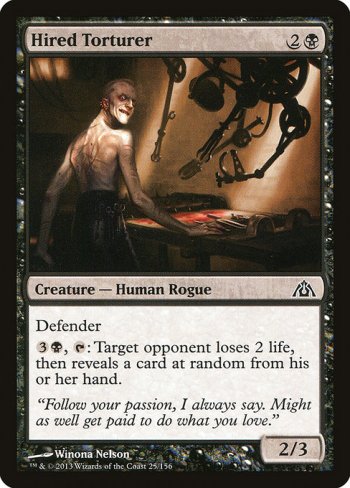Another wrote this and I am simply pasting it here for your cognizance.
One of the main reasons for the persistence of the false teaching of eternal conscious torment is that of the blatant and incorrect interpretation of the Greek word “aion” in many of our Bible translations. It is often incorrectly translated to mean “eternal” when in fact it means “age.” The absurdity of this bad translation can be seen in Revelation 14:11 where the phrase “aionios aionion” which means “age of the ages” is translated as “Forever and Ever.” You cannot add anything to forever because it is already an absolute measure of time. “The age of ages” does not refer to an endless duration of time but rather a specific age that serves a specific purpose. That age will end when its purpose is accomplished. Those who adhere to the false doctrine of eternal conscious torment cannot argue about the meaning of this word. Anyone who studies the word meanings will agree that “aion” means “age” and that there is no individual word in Greek that specifically means “eternal.” Instead, they often claim correctly that you must take the word “aion” in context in order to determine whether it means age or eternity. However, they then erroneously infer that the context within the judgment passages is obviously that of eternity. They then argue that if judgment is not eternal, then no afterlife can be eternal since the word “aion” is used in both instances. In other words, “Since “aion” is used to describe both the period of judgment and the period of reward in the same context, how can you say that punishment is temporary and reward is permanent?” The answer is simple, even though you do see punishment and reward addressed together in some verses in which the word “aion” is used for both; there are other instances in which the writers of the New Testament do speak of eternity. Nowhere in scripture is the concept of eternity ever communicated in relation to judgment. Yet, the New Testament writers do speak of eternity in other contexts. As an example, Let us look at four verses from the New Testament book of Jude. Jude 1:6 (NIV) And the angels who did not keep their positions of authority but abandoned their proper dwelling— these he has kept in darkness, bound with everlasting chains for judgment on the great Day. The Greek word for “everlasting” used in this verse is “aidios.” It is the adjective form of the adverb “aei” meaning “always, unceasingly, perpetually or on every occasion.” From this definition, it most certainly sounds like an unending period. Even so, in this context, the word “aidios” CANNOT mean “forever.” How do I know? The message is not extremely clear in Jude 1:6. However, we have a parallel passage in 2 Peter 2:4 which says: “God did not have pity on the angels that sinned. He had them tied up and thrown into the dark pits of hell until the time of judgment. (CEV) In this instance, Peter is much clearer than Jude is. He gives us an ending point for how long the sinning angels will be tied up. How long will they be in chains? “Until the time of judgment” Therefore the word “everlasting” as used in Jude 1:6 CANNOT mean forever. Jude 1:7 (NIV) In a similar way, Sodom and Gomorrah and the surrounding towns gave themselves up to sexual immorality and perversion. They serve as an example of those who suffer the punishment of eternal fire. Here the word “eternal” is “aion” meaning age. An age is an indefinite period of time, which could technically mean forever or it can just refer to either a specified or an unspecified period. As we discussed earlier, we need to look at the context of the verse in order to determine whether there is anything that might indicate the duration of that age. In this case, there is. The verse states that Sodom and Gomorrah “serve as an example of those who suffer eternal fire.” Therefore, if we want to know the ultimate effect or the ultimate duration of the “eternal fire” we must turn to Sodom and Gomorrah as an example. In what way is Sodom an example? Once again, let us look at the parallel verse in Peter 2:6: “Later, God condemned the cities of Sodom and Gomorrah and turned them into heaps of ashes. He made them an example of what will happen to the ungodly.” When you combine what Jude said with what Peter said, it is obvious that the fire does not burn forever. A person who believes in conditionally immortality, the view that God will destroy the ungodly rather than tormenting them, would say that in this instance, the word “aion” speaks of eternality of consequence rather than eternality of duration. In other words, “The fire was eternal in that it completely accomplished its task and could not be quenched until it was finished.” This makes a lot of sense because obviously the fire is no longer burning. However, was the fire eternal in consequence as the annihilationist claims? Ezekiel 18:53-57 (NIV) However, I will restore the fortunes of Sodom and her daughters and of Samaria and her daughters, and your fortunes along with them, 54 so that you may bear your disgrace and be ashamed of all you have done in giving them comfort. 55 And your sisters, Sodom with her daughters and Samaria with her daughters, will return to what they were before; and you and your daughters will return to what you were before. 56 You would not even mention your sister Sodom in the day of your pride, 57 before your wickedness was uncovered. “What?” “Did he just say that God will restore Sodom?” Yes he did. If Sodom is an example of the consequence of “eternal fire”, if that fire fully accomplishes its purpose as God designed it too, and if God said that He would restore Sodom, then He will also restore ALL who experience that eternal fire. Therefore, in this instance, “aion” CANNOT refer to a duration of endless torture. Jude 1:21 Keep yourselves in God’s love as you wait for the mercy of our Lord Jesus Christ to bring you to eternal life. The Greek word “aionios” in this passage is adjective meaning “age during.” Young’s Literal translates the verse this way: “Yourselves in the love of God keep ye, waiting for the kindness of our Lord Jesus Christ -- to life age-during” Our brothers and sisters who believe in eternal conscious torment would say, since you cannot assume that “life age-during” is eternal when dealing with punishment, you also cannot assume that Christians will have eternal life either. If you are reading this verse alone in context, they are right; there is nothing in this verse that indicates eternal life. Rightly so because this verse is not about eternal life. It is about age-during life. When is age-during life? It is life in the age of ages. Remember, the age of ages will serve a specific purpose and then a new age will begin. If the writers of the New Testament had intended to communicate punishment that was eternal, could they have done so? Yes! Can we know for sure that there is such a thing as eternal life? Yes! Jude knew the difference. Jude 1:25 To the only God our Savior be glory, majesty, power and authority, through Jesus Christ our Lord, before all ages, now and forevermore! Amen. The Greek word used here is still “aion” just as it is in all of the judgement passages where its meaning is age of ages. How then can I know that this same word means “forever” in this verse? I can know because of the usage of the Greek adjective “pas” meaning “all.” In Young’s Literal, the verse reads this way: To the only wise God our Saviour, [is] glory and greatness, power and authority, both now and to all the ages! Amen. All of the ages is the equivalent of forever. How was “all” used in other scriptures? John 12:32 (ESV) And I, when I am lifted up from the earth, will draw ALL people to myself. 1 Timothy 4:10 (ESV) For to this end we toil and strive, because we have our hope set on the living God, who is the Savior of ALL people, especially of those who believe. 2 Peter 3:9 (ESV) The Lord is not slow to fulfill his promise as some count slowness, but is patient toward you, not wishing that any should perish, but that ALL should reach repentance. 1 Timothy 2:4 (ESV) Who desires ALL people to be saved and to come to the knowledge of the truth. Colossians 1:20 (ESV) And through him to reconcile to himself ALL things, whether on earth or in heaven, making peace by the blood of his cross. 1 Corinthians 15:22 (ESV) For as in Adam ALL die, so also in Christ shall ALL be made alive. Ephesians 1:10 (ESV) As a plan for the fullness of time, to unite ALL things in him, things in heaven and things on earth. 1 Timothy 2:6 (ESV) Who gave himself as a ransom for ALL, which is the testimony given at the proper time. Acts 3:21 (ESV) Whom heaven must receive until the time for restoring ALL the things about which God spoke by the mouth of his holy prophets long ago. John 17:2 (ESV) Since you have given him authority over ALL flesh, to give eternal life to ALL whom you have given him. Titus 2:11 (ESV) For the grace of God has appeared, bringing salvation for ALL people, 1 Corinthians 15:28 (ESV) When ALL things are subjected to him, then the Son himself will also be subjected to him who put ALL things in subjection under him, that God may be ALL in ALL. Ephesians 1:9-10 (ESV) Making known to us the mystery of his will, according to his purpose, which he set forth in Christ as a plan for the fullness of time, to unite ALL things in him, things in heaven and things on earth. Romans 5:18 (ESV) Therefore, as one trespass led to condemnation for ALL men, so one act of righteousness leads to justification and life for ALL men. “ALL” means “ALL.” “All ages” means “all ages.” Therefore, we can know that we will have eternal life. “All men” means “all men.” Therefore, we can know that ALL will have eternal life.




